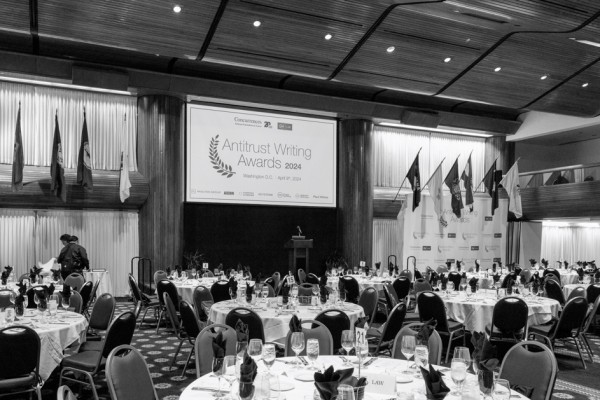On August 11, the Competition Commission of South Africa hosted a hybrid workshop for trade associations, business stakeholders, and sector regulators in Fourways, Johannesburg to raise awareness of the permissible exchanges of competitively sensitive information within the framework of the Competition Act No. 89 of 1998 (as amended).
The Guidelines on the Exchange of Competitively Sensitive Information between Competitors were issued on 24 February 2023 and aim to provide clear direction for industry associations, as well as public and private stakeholders on the exchange of such information.
Over the years, the Commission has received numerous requests for advisory opinions from industry associations and stakeholders seeking guidance on establishing information exchange systems. In response to these requests, the Guidelines address the prevalent industry ambiguity surrounding the permissible exchange of information while ensuring compliance with the Competition Act.
Addressing the workshop, the Commission’s head of Legal Services Bakhe Majenge said the guidelines are the result of an extensive and iterative process drawing from local and international cases and best practices.
“The framework is an enabling framework that seeks to create a conducive environment for the exchange of information that is necessary for businesses to function, but at the same time, ensuring that there isn't any dampening of competitive rivalry,”
he said.
Majenge said the Guidelines outline a comprehensive approach that the Commission will adopt to assess whether information exchange between competitors constitutes a violation of the Competition Act. They also shed light on common information exchange scenarios within the context of, inter alia, trade associations, which are not likely to raise any competition concerns. The Guidelines define competitively sensitive information as data that is important for competition between firms and can impact parameters such as price, output, quality, or innovation. Examples include prices, customer lists, production costs, quantities, sales capacities, marketing plans, turnover, investments, quality risks, technologies, and research and development programmes and their results.
In line with its advocacy objectives, the Commission recognises the importance of enhancing awareness and understanding of the newly published Guidelines. The workshop, therefore, served as a platform for the Commission to address queries, clarify doubts, and provide further insights into the Guidelines.
The Commission’s litigation manager Candice Slump highlighted some of the benefits of information exchange including improvement of investment decisions and product positioning, the provision of organisational learning, the facilitation of entering an industry, benchmarking, best practices, and general trends of market demand provided that the information is sufficiently aggregated and does not reveal firmspecific data.
On the downside, Slump said the anti-competitive effects of disaggregated information exchange increase the likelihood of establishing or facilitating collusion or coordination between competitors. It further allows firms to achieve collusive or coordinated outcomes and can result in foreclosure over new entrants, depriving them of the opportunity to get access to exchange information, or even allowing the incumbent firms to take steps to prevent entry into markets.
“The exchange of competitively sensitive information between competitors can distort competition by reducing uncertainty about future behaviour and reducing independent decision-making information about prices and quantities. These are generally the most important for a competitive brand,”
said Slump.
The Competition Commission is committed to fostering an enabling and competitive business environment while ensuring adherence to legal framework. The workshop represents an essential step towards promoting greater clarity and understanding of information exchange practices among industry players. The Commission would like to express its gratitude to all participants for their active engagement and meaningful contributions during the workshop.
The Guidelines can be accessed at https://www.compcom.co.za/wp-content/uploads/2023/...
Source: CompCom.co.za




